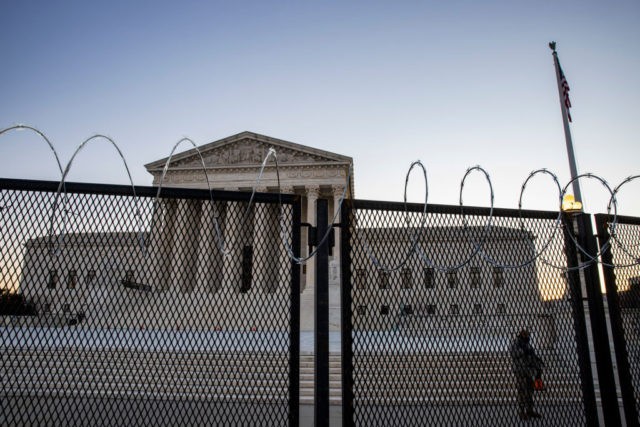The Supreme Court of the United States (SCOTUS) heard arguments Tuesday on the legal challenge to two voting laws in Arizona that challengers claim discriminate against racial minorities. But Project 21, a black leadership network, issued remarks to the press warning that race is not the issue in the case.
According to the SCOTUS website, the issues before the court are:
(1) Whether Arizona’s out-of-precinct policy, which does not count provisional ballots cast in person on Election Day outside of the voter’s designated precinct, violates Section 2 of the Voting Rights Act; and (2) whether Arizona’s ballot-collection law, which permits only certain persons (i.e., family and household members, caregivers, mail carriers and elections officials) to handle another person’s completed early ballot, violates Section 2 of the Voting Rights Act or the 15th Amendment.
“The challengers argue that both the policy and the law discriminate against racial minorities in Arizona, and the justices’ eventual ruling obviously could affect how the state carries out its elections going forward,” Amy Howe wrote on SCOTUSblog. “More broadly, though, the justices could also weigh in on the proper test for evaluating voting-rights claims like these, which could have a sweeping effect nationwide.”
But leaders of Project 21 see other ramifications of the SCOTUS review and, along with the Center for Equal Opportunity, joined an amici curiae (“friends of the court”) brief written by the Pacific Legal Foundation.
Project 21 is “asking the justices to remember that ‘[e]qual protection should ensure that government decision-making is free from the taint of racial considerations, but disparate impact liability does not allow racial impartiality.’”
“Phony claims of voter suppression should never trump legitimate voter integrity measures,” Project 21 Co-Chairman Horace Cooper said in the press release announcing the group’s role in Brnovich v. Democratic National Committee. “All Americans — black, white, or brown — benefit from ensuring that authentic, duly-registered voters cast the ballots that decide what policies and elected officials will govern their communities.”
“While these laws have been challenged as a violation of Section 2 of the Voting Rights Act and the 15th Amendment’s protections from racial discrimination infringing upon voting rights, they were upheld by the lower federal appeals court,” Project 21’s press release said.
The brief argued that:
Reasonable minds can and do differ as to whether these policies are advisable or necessary. But neither policy imposes a racially discriminatory burden on voting. And neither policy deprives any Arizona voter of the equal opportunity to cast a legal ballot.
In response to claims that statistical disparities prove racial discrimination, the brief further explained:
Equality of opportunity goes hand-in-hand with causation. If a statistical impact is observed, but a State’s election laws provide equal opportunity for everyone to participate in the process, it follows that the State’s election laws have not caused the disparate impact. The cause of the disparity in such a case is simply the “failure to take advantage of political opportunity.”
“The Voting Rights Act was signed into law over 50 years ago to eliminate discrimination against blacks at the ballot box,” Project 21 member Christopher Arps, said. “This groundbreaking and historic law should not be manipulated into a vehicle to sow doubt, confusion, chaos, and racial animosity into the electoral process.”
“Permitting so-called ‘ballot harvesting’ and the counting of votes cast at a wrong precinct do just that,” Arps said. “I hope the justices take this into consideration when they render their decision later this year.”
The case is Brnovich v. Democratic National Committee, No. 19-1257 in the Supreme Court of the United States. A decision is expected at the end of June.
Follow Penny Starr on Twitter or send news tips to pstarr@breitbart.com

COMMENTS
Please let us know if you're having issues with commenting.